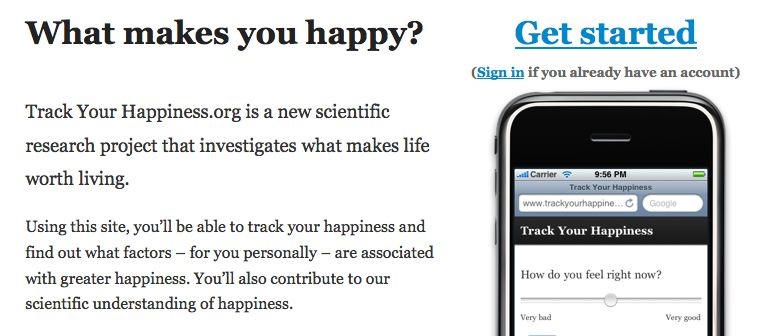Harvard iPhone-based Happiness Study
Sunday, November 14th, 2010The scientific study of happiness is a recent but important trend in cognitive science. It has changed our understanding of how minds work and is therefore very relevant for cognitive designers. So I am always on the lookout for new studies that offer designable insights.
For example, Harvard researchers have developed an iPhone app to do some citizen science studies on happiness. Not only are the results relevant for cognitive designers but the study design – crowdsourcing the data collection using smart phones – is also of interest. 
The general finding was:
“A human mind is a wandering mind, and a wandering mind is an unhappy mind,” Killingsworth and Gilbert write. “The ability to think about what is not happening is a cognitive achievement that comes at an emotional cost.”
Some specific findings include:
* We spend 47% of our time doing one thing and thinking about something else (mind wandering).
* Our minds wander across all the things we do.
* We are least happy when our minds wander. Indeed mind wandering is a better predictor of happiness than the activity we are doing.
* Tasks that make us least happy are resting, working and using a home computer.
* We are most happy when fully engaged in the moments as when was are having a conversation, making love or exercising.
These findings were generated from some 250,000 data points that they collected from 2250 volunteers using an iPhone app. The app asks some general questions and then pings you periodically to find out what you are doing and how happy you are. For your trouble you get a personalized happiness report. You also get a chance to contribute data to a scientific study at Harvard. You can still sign up. Go citizen scientist, go!